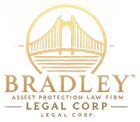When business owners prepare to sell their company, they usually focus on tangible assets—real estate, equipment, inventory, and financials. But what about the intellectual property (IP) that makes their business unique? Many entrepreneurs don’t realize that their company’s brand identity, trade secrets, business processes, and proprietary knowledge are valuable assets that must be protected and monetized.
A Costly Oversight: The Story of Mark’s Business Sale
Mark, a successful business owner, had spent 30 years building his company from the ground up. He was finally ready to sell and retire. Like any smart entrepreneur, Mark worked with his business broker, CPA, and attorney to list out all his company’s assets—machinery, inventory, real estate, accounts receivable, and cash reserves.
After preparing the financials, his lawyer asked him an unexpected question:
“Mark, where’s your intellectual property?”
Mark was confused. He responded, “I don’t have patents or trademarks. There’s no IP in my business.”
But his attorney shook his head.
“Mark, you don’t run your business exactly like your competitors, right?”
Mark agreed.
“Then you do have intellectual property—you just don’t know what it is or how to protect it.”
Mark had unknowingly left out one of his company’s most valuable assets. Without proper identification and protection, he risked losing out on thousands—if not millions—of dollars when selling his business. Worse, without formal protections, a competitor or former employee could easily take that knowledge and use it against him.
The Hidden Value of Intellectual Property in Your Business
Many business owners believe IP only applies to patents and trademarks, but that’s far from the truth. Intellectual property includes:
✅ Trade Secrets: Unique business processes, manufacturing techniques, customer data, pricing strategies, and operational efficiencies.
✅ Proprietary Knowledge: Special methods for sales, marketing, or client retention that give your business a competitive edge.
✅ Brand Identity: Logos, slogans, and unique product names—even without a trademark, these elements carry significant brand value.
✅ Company Culture & Internal Know-How: Best practices developed over time that make your business run more efficiently.
If these assets aren’t legally recognized and protected, they may not be included in your business valuation, meaning you could be giving away a significant part of your company for free.
What Happens If You Don’t Identify Your IP?
If you fail to recognize and protect your intellectual property before selling your business, you could face two major risks:
1. You Leave Money on the Table
Buyers pay for competitive advantages, not just physical assets. If you don’t highlight and document your company’s proprietary processes, a buyer won’t pay for them—leading to a lower sales price.
2. Competitors Can Steal Your Knowledge
If your company’s unique methods, trade secrets, or business efficiencies aren’t legally protected, a competitor (or even a former employee) can use them without consequences. That could mean:
• A key employee leaves and takes valuable business know-how to a competitor.
• A competitor copies your customer service process and wins over your clients.
• Your internal operational techniques become industry knowledge—giving away years of innovation.
Without trade secret protections, non-disclosure agreements (NDAs), and enforceable contracts, these risks become reality.
How to Identify and Protect Your Intellectual Property
Step 1: Audit Your Business for Hidden IP
Start by asking yourself:
✅ Do we have a unique process or technique that sets us apart?
✅ Have we developed proprietary software, marketing strategies, or internal training methods?
✅ Does our company culture or management system create an advantage over competitors?
✅ Are there customer service methods or operational efficiencies we rely on?
Every business, from manufacturing to professional services, has some form of intellectual property—even if it isn’t obvious.
Step 2: Implement Legal Protections
Once you’ve identified your IP, it’s time to protect it. A business and asset protection attorney can help you:
✅ Secure Trade Secrets: Implement internal policies and security measures to prevent leaks.
✅ Use NDAs & Non-Compete Agreements: Ensure key employees and business partners can’t take your know-how elsewhere.
✅ Protect Brand Identity: Trademark important logos, slogans, and product names.
✅ Consider Patents & Copyrights: If applicable, these legal protections can prevent copying.
✅ Include IP in Your Business Sale: Make sure your IP is listed in your schedule of assets to maximize your company’s valuation.
Don’t Wait Until It’s Too Late
Like Mark, many business owners don’t recognize their intellectual property until they’re about to sell—and by then, it may be too late. If you’re considering selling your business, restructuring, or expanding, now is the time to identify, protect, and monetize your intellectual property.
At Bradley Legal Corp., we specialize in asset protection strategies that safeguard your business from creditors, competitors, and legal risks. Our team can help you secure your intellectual property.
🔹 Need help protecting your intellectual property before selling your business? Contact us today for a strategy session. (888) 773-9399.
By: Brian T. Bradley, Esq.




